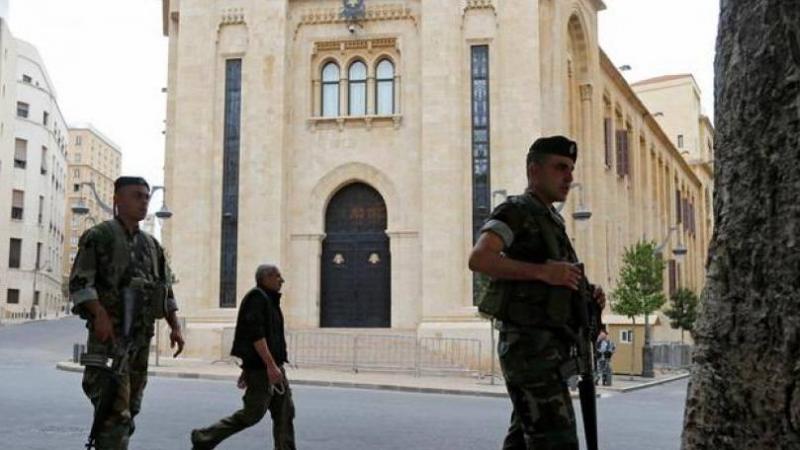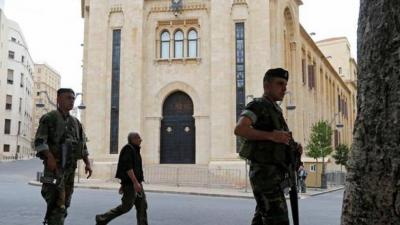Finally, after a difficult struggle that began before the parliamentary elections and has continued until now, the 2022 budget has officially been approved. This occurred after four marathon days of detailed scrutiny by both supporters and opponents of the budget. It was passed in the Parliament with a majority of 63 votes in favor, 37 against, and 6 abstentions, awaiting publication in the official gazette to become effective. While the opposing blocs and deputies sought to derail it by disrupting the quorum, similar to what happened in the previous session, Parliament Speaker Nabih Berri succeeded this time in securing the minimum number of deputies necessary for the vote, which fell short of half, to pass the budget with minimal losses.
The Secretary of the Democratic Gathering bloc, MP Hadi Abou Hassan, confirmed that the bloc's and the Progressive Socialist Party's stance on the approved budget is clear, stating: "We do not find it to be an ideal budget, but the country cannot continue without a budget, especially as we are on the verge of the parliament becoming a voting body, making legislation and budget approval impossible." He continued, "The importance of the budget lies in it establishing rules and controls for expenditure, as spending based on the twelfth clause along with opening credits and treasury advances leads to significant inflation without securing revenues."
Abou Hassan highlighted in an interview with "Anbaa" electronic newspaper that "we tried to ensure that the revenues and expenditures approved in the budget were balanced as much as possible. It could not have been better than this, which is why we said there was a need to pass it for several important sectors, the first of which is the health and medical sector, and reviewing hospital ceilings and the Ministry of Health's budget. This is currently the primary suffering of the Lebanese citizen. Secondly, for the Lebanese University as we approach the academic year, and thirdly for public sector employees, anyone receiving a salary from the Lebanese state, whether they are employees, workers, contractors, or retirees, in addition to the army and security forces, especially since there has been a disruption of public facilities due to strikes; these are legitimate demands."
Abou Hassan emphasized that "the important thing is to start from some point, and this budget covers three months. We have requested to begin preparing the 2023 budget, which will allow us sufficient time to discuss the budget in detail, and we aim for it to be a reform budget in addition to a recovery plan. We must not forget that the budget is a condition set by the International Monetary Fund alongside reform laws, and we are obliged to take a step forward."
From a financial and economic perspective, financial and economic expert Antoine Farah considered that the true value of this budget is nonexistent, stating in an interview with "Anbaa" electronic newspaper: "To be modest, this budget had to be passed irrespective of its content because it serves two essential functions. The first is to meet a condition set by the IMF for the approval of a financing program because it requires financial order in this regard; thus, this function has been achieved. The second function is partially improving state revenues to raise public sector salaries to prevent total collapse. This was necessary, and this function will be fulfilled by the budget, especially since we are talking about a public sector that includes the army and other security institutions. Ensuring the minimum for these institutions is a critical duty because it is an economic investment; if there was no security and if these institutions were unstable and could not provide security services, we would not have a tourist season. Hence, meeting the minimum for these is an essential economic investment."
He added, "From this standpoint, the budget has fulfilled these two functions well," wishing for a focus to be placed on the 2023 budget, "as the attack we witnessed during the 2022 budget should have been directed towards studying the expenditures of the 2023 budget." In his view, it is important to discuss modifying and changing the recovery plan sent by the government to Parliament, "since it is a plan without numbers and without timelines and does not resemble what we call rescue plans or recovery plans. Therefore, there must be an exceptional effort to amend this plan and include numbers and timelines to allow for accountability; the focus should start from here."
In a related context, political researcher and writer Elias Zoghbi commented on the majority that the budget received, stating that it was not unexpected to approve the budget by gathering the sufficient number of votes, namely 63. He noted through "Anbaa" electronic newspaper that "what occurred clearly indicates the formation of a blocking third within the fluctuating majority that is attempting, through coordination and communications, to reconstitute itself to exceed the absolute majority of 67 deputies. This indicator confirms that what the budget has collected is a temporary local convergence that will not extend to other entitlements, particularly the election of a president of the republic."
In conclusion, the approval of the budget is better than the alternative, especially given the exceptional circumstances the country is undergoing. However, the real test always lies in the implementation, away from slogans.




